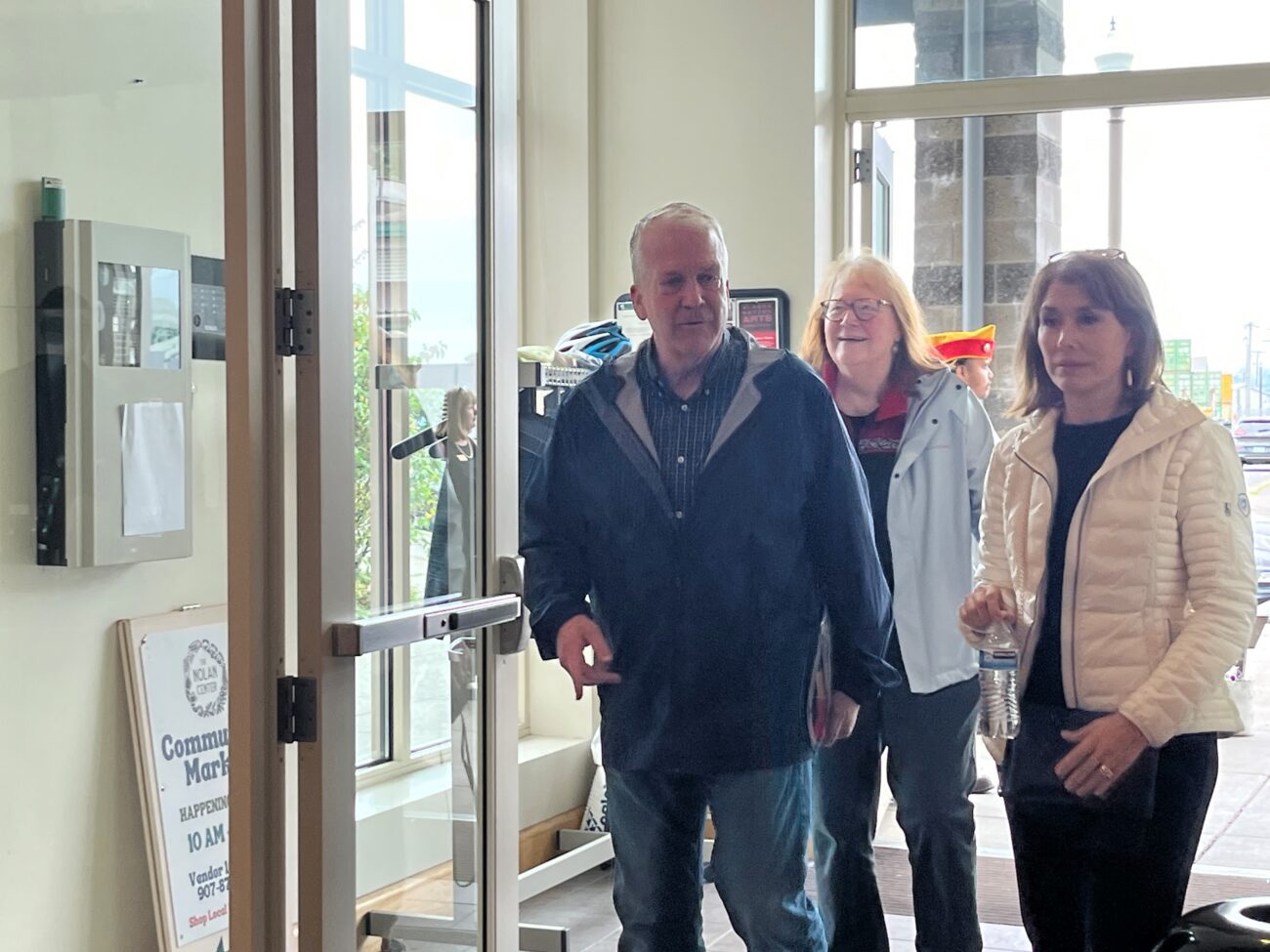
Alaska Senator Dan Sullivan visited Wrangell earlier this month to discuss the reconciliation bill known as the One Big Beautiful Bill Act. KSTK’s Colette Czarnecki caught up with him to ask a few questions about other state and national issues.
Sullivan voted to cut all funding to the Corporation for Public Broadcasting, which helps fund public radio stations in Alaska, like KSTK. He said he supports rural radio stations in the state and is looking for other sources of funding.
This interview has been lightly edited for clarity and brevity.
I’ve been a strong supporter of our rural radio stations. At the same time, I had been telling the leadership at the Corporation for Public Broadcasting and NPR that, ‘Hey, look, you can’t have (that) kind of bias reporting year after year.’ Which I thought was very biased when it’s funded through the American taxpayer.
I had worked with the administration, literally everybody, from the President on down, saying, ‘Hey, Alaska has unique needs in this area.’
So we had been working with BIA, that’s the Department of Interior, but we had also been working with OMB, the Office of Management and Budget, through the Denali Commission, to get additional funding. So that’s ongoing, and we’re making good progress on the latest list. Let us get back to you on the exact status, because it’s been changing daily.
So the Denali Commission is more so a long-term solution?
Yeah, there’s a lot of opportunities there. There are other longer term solutions we’ve been looking at, the foundations and everything are also stepping up. I think we’re in a good spot.
Can you say anything about how the federal shutdown affects federally managed fisheries?
Look, on the shutdown, to be honest, it’s a real disappointment.
We’ve been in discussions with OMB and others about all the important federal agencies in Alaska. You might remember the last big shutdown, we worked really hard with the federal government to explain the importance of some of the federal fisheries management issues, which, to be honest, aren’t super well understood in DC.
There’s a North Pacific Fishery Management Council meeting, and so they can’t speak with NOAA scientists about fisheries.
We can check into that. Like I said, we’ve been very proactively working with the administration and OMB on specific federal agencies that are really important to keep going, of course, our military, Coast Guard, but there are other ones.
What are your thoughts on sending military troops to fight crime in Chicago and Portland, where elected leaders there don’t want them?
I think it depends on what’s happening in those communities. I think if there’s violence that’s relating to federal agencies or federal buildings, federal authorities have that capability. I wish those leaders in those communities would do more to deal with their violent crime challenges. Chicago is a national disgrace.
Most Americans would want whatever we can do to bring down crime rates.
One of the reasons I’m in Wrangell, you might want to ask me those questions, is to explain what was in this budget reconciliation bill.
But one of the things that we did, we put a ton of money behind securing the border. That’s law enforcement. That’s ICE. It matters hugely to Alaska. We’ve had the highest fentanyl overdose rates in the country.
You have Mexican drug cartels that are literally poisoning our Alaska youth. And so I think when you get more resources to law enforcement to bring down crime, to bring down drug dealing, to help our communities, I think it’s important. So, I don’t have all the specifics about Chicago and Portland. I think in some ways it’s good the President’s talking about that.
Do you see that military troops will fight the fentanyl epidemic then?
Right now, what’s happening is the President, through the funds, we got him in the budget reconciliation bill in July, but also through his own actions, has really shut down illegal immigration.
I’ve gotten briefs from Alaska law enforcement. We’ve literally had Mexican drug cartels in our states and small communities like Wrangell and other communities. And I’m for doing everything we can to crush that and you don’t have these very violent, evil criminal organizations that are bringing that poison to our people and also really engaged in human trafficking and so many other heinous crimes that hurt our state and our country.
I think we’ve made really big progress since President Trump got elected. Huge. Illegal immigration in the United States is down 99% so the border is no longer open.
My last question, some of my colleages have had trouble getting a comment from you. How can public radio reporters get an easier comment from you?
I comment all the time, I’m one of the most open.
Sometimes I do interviews like this and sometimes I do statements. You know, I’m pretty busy. But you give me the name of the reporter or the editor, and you have them call my team.













